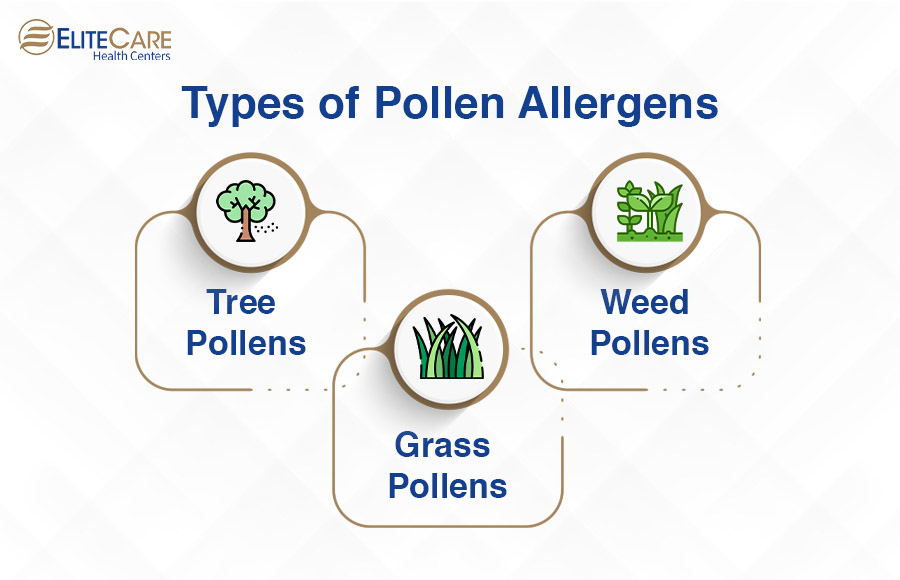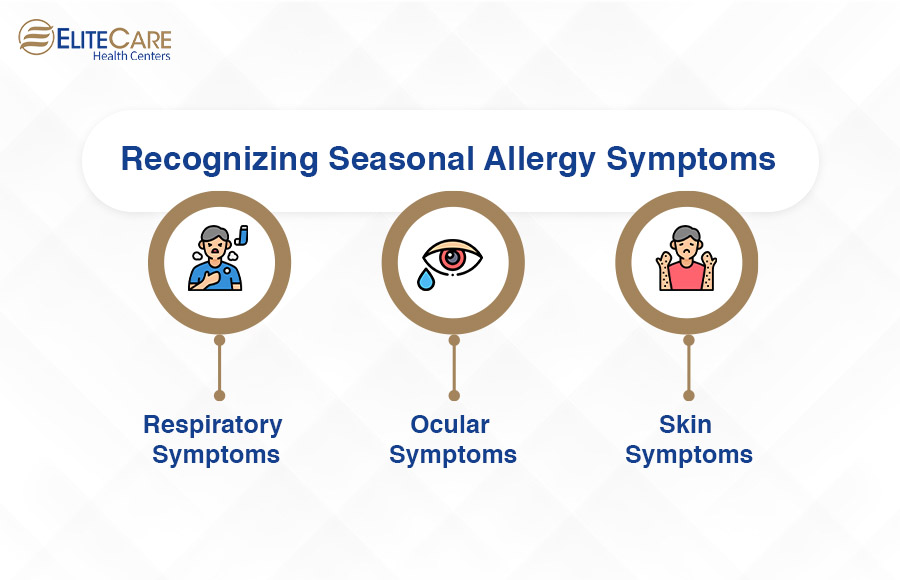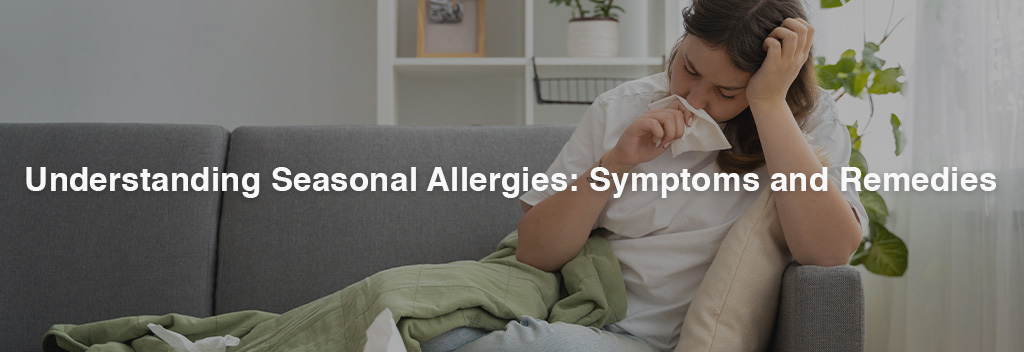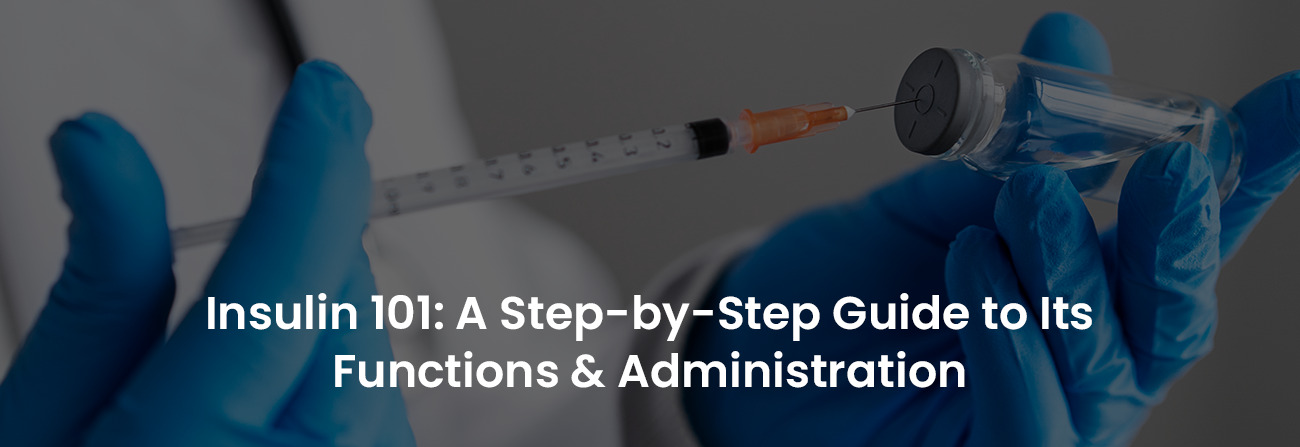
Every year, millions of Americans suffer from seasonal allergies, commonly referred to as hay fever or allergic rhinitis, which can cause a variety of symptoms that greatly interfere with day-to-day activities.
Pollen counts grow with the arrival of spring and autumn, which might cause allergy reactions in those who are sensitive.
What Causes Seasonal Allergies?
Understanding the main causes of these immune system reactions is essential to understanding seasonal allergies. One of the main reasons is pollen, the fine particles that plants release.
Pollen is released into the atmosphere by grasses, weeds, and trees to fertilize other members of their species. The immune system of those who suffer from allergies perceives pollen as a danger and releases histamines and other substances that aggravate their symptoms.
Aside from pollen, environmental factors can exacerbate seasonal allergy symptoms. These include
- Air Quality: High levels of air pollution and smog can intensify allergy symptoms.
- Weather Conditions: Warm, dry, and windy weather tends to increase pollen dispersal, while rain can temporarily clear the air of allergens.
- Geographic Location: The prevalence of specific allergens varies by region, affecting individuals differently based on their location.
Types of Pollen Allergens

- Tree Pollens:
Springtime is often associated with an increase in tree pollen, with common allergens including oak, birch, maple, cedar, and pine.
- Grass Pollens:
Late spring and early summer bring higher levels of grass pollen, with common culprits being Bermuda grass, Timothy grass, Kentucky bluegrass, and ryegrass.
- Weed Pollens:
Late summer and fall witness an upswing in weed pollen, with ragweed being a major allergen. Other notable weed allergens include sagebrush, lamb’s quarters, and pigweed.
Recognizing Seasonal Allergy Symptoms
Seasonal allergies manifest through a range of symptoms that can affect the respiratory system, eyes, and skin. It’s important to recognize these signs to seek appropriate treatment promptly.

Respiratory Symptoms
- Sneezing
- Runny or Stuffy Nose
- Itchy Throat and Eyes
- Coughing
Ocular Symptoms
- Red and Watery Eyes
- Swollen Eyelids
- Sensitivity to Light
Skin Symptoms
- Eczema flare-ups
- Hives
Diagnosing Seasonal Allergies
For accurate diagnosis, it’s important to speak with a healthcare provider if you think you may have seasonal allergies.
Seasonal allergies can be identified and confirmed using the following techniques:
1. Medical History and Symptom Assessment
In addition to asking about your medical history, including any family history of allergies, healthcare professionals will thoroughly evaluate your symptoms to ascertain the most likely cause.
2. Skin Prick Test
Small doses of common allergens, such as pollen, are injected into the skin during a skin prick test to see how the body responds. This test can assist in determining which particular allergens are causing your symptoms.
3. Blood Tests
Blood tests quantify the amount of antibodies produced in reaction to allergens, such as the particular IgE blood test. These tests can assist in determining certain triggers and confirming the existence of allergies.
Seasonal Allergy Management and Prevention
While complete avoidance of allergens may be challenging, several strategies can help manage and prevent seasonal allergy symptoms.
1. Medications
- Antihistamines:
Over-the-counter antihistamines like loratadine, cetirizine, and fexofenadine can effectively alleviate symptoms such as sneezing, itching, and runny nose.
- Decongestants:
Nasal decongestants, available in oral or nasal spray form, help reduce nasal congestion by constricting blood vessels.
- Corticosteroids:
Intranasal corticosteroids, such as fluticasone and budesonide, can provide relief from nasal inflammation and congestion.
- Allergy Shots:
Immunotherapy, or allergy shots, involves gradually exposing the body to increasing amounts of allergens to desensitize the immune system over time.
2. Environmental Modifications
- Pollen Avoidance:
Stay indoors on high-pollen days, keep windows closed during peak pollen seasons, and use air purifiers to reduce indoor allergen levels.
- Personal Care Practices:
After spending time outside, take a shower and change into clean clothes to get rid of pollen from your body and clothing.
- Allergen-Proofing the Home:
Employ allergen-proof bedding covers, regularly clean and vacuum, and minimize the presence of indoor plants to reduce allergen exposure.
3. Natural Remedies
- Local Honey:
Some individuals believe that consuming local honey may help build immunity to local pollen, although scientific evidence supporting this claim is limited.
- Nasal Saline Rinse:
Irrigating the nasal passages with saline solution can help clear out allergens and reduce nasal congestion.
- Butterbur Extract:
Butterbur, an herbal supplement, has shown promise in relieving allergy symptoms, but its use should be discussed with a healthcare provider.
When to Seek Professional Help?
While many individuals successfully manage seasonal allergies with over-the-counter medications and lifestyle modifications, it’s crucial to recognize when professional intervention is necessary.
If symptoms are severe or not responding to over-the-counter treatments, consult a primary care provider for a more comprehensive evaluation.
Look out for persistent symptoms that last beyond the typical allergy season. This may indicate the presence of other underlying conditions, and a healthcare professional should be consulted in this case.
Seasonal allergy sufferers may be more susceptible to allergic asthma, which is characterized by breathing difficulties such as wheezing and breathlessness. Immediate action is essential for controlling asthma symptoms.
Seasonal allergies are a prevalent and frequently bothersome health condition that can greatly lower an individual’s quality of life. Comprehending the causes, signs, and potential solutions is necessary for efficient handling.
Do not hesitate to seek professional advice to create a tailored treatment plan that meets your individual needs if you think you may have seasonal allergies. Schedule an appointment at an EliteCare Center nearest you today by visiting our website or call +1 888-596-2090.
Frequently Asked Questions
Sneezing, runny nose, itchiness in the eyes, coughing, eczema flare-ups, and hives are common symptoms of seasonal allergies.
While colds and seasonal allergies share some symptoms allergy symptoms often include itching of the eyes and throat. Colds, on the other hand, may cause body aches and a fever.
Seasonal allergies may be relieved by several natural treatments. Nasal saline rinses can help eliminate allergens. Some people also believe that consuming honey could improve immunity to pollen.





